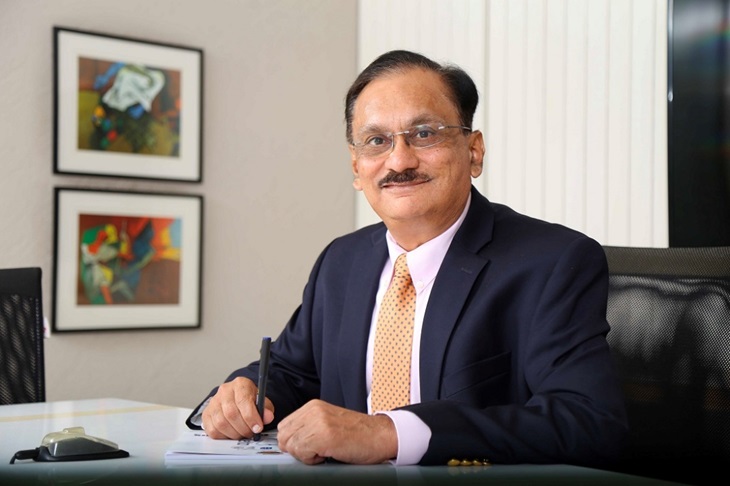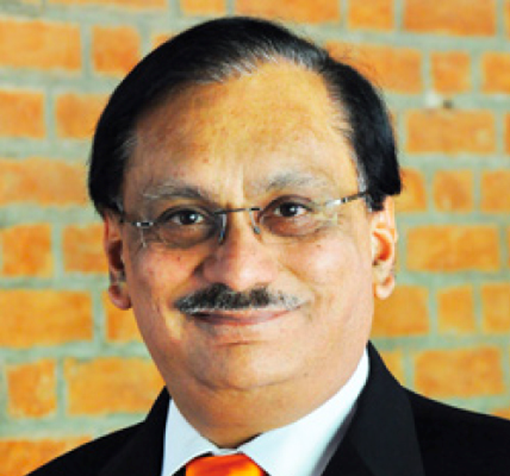Entrepreneurial and Philanthropy Odyssey with Mr. Pratul Shroff: A journey of innovation and impact

Mr. Pratul Shroff graduated from BITS Pilani (Pilani ’76) with a bachelor’s degree in Electrical and Electronics Engineering. He holds a master’s degree in Computer Engineering from Cornell University and has also earned an executive MBA from IIM Ahmedabad. He is a pioneering serial entrepreneur and venture investor with a three-decade leadership journey in the USA and India. He pioneered the development of the electronics and chips industry in Gujarat during his entrepreneurial stint as the CEO and founder at eInfochips. He created the Dr. K. R. Shroff Foundation as a medium to make a difference in society.
Mr. Shroff shared enlightening perspectives and a wealth of insights during a fireside chat at the Pilani campus, imparting valuable knowledge and lessons to all.
What motivated you to obtain a glider pilot license from the Birla Flying Club, and how would you describe your overall experience during the process?
During our time, post-classes, people used to hang out at the post office. I always wanted to utilize my time productively. I was always fascinated by flying which brought me on to get a gliders pilot license from the Birla Flying Club. It was a privilege for me to get the license.
How can a startup break into legacy systems that are very hesitant to change?
The key idea is to have a differentiator product. Don’t follow the market blindly with the mob mentality. Furthermore, the product should provide tangible value, emphasizing its significance from the client's viewpoint rather than solely from your own. Typically, your idea of the product and the market’s idea of the product should overlap only by 20-30%. You should try to align your vision of the product with the market’s needs. During our semiconductor services endeavors, our primary intention was to emphasize the design aspect. I wanted to pedal design, but the market consistently conveyed the need for additional verification engineers, so I found myself compelled to swiftly navigate towards the verification aspect of the services business to meet market demands.

How was your experience working for Intel different from your experience working for your own company?
One of my key takeaways while working at Intel was ‘constructive criticism’. Never try to hide the dirt under the rug. Be specific to the issue, not the person. Address the issue and resolve it. Additionally, one of the founders at Intel devised this concept of ‘management by objectives’. Everything that you do must be quantifiable and measurable, even if it can’t be, try to quantify it to some aspect periodically. Today, I am carrying these same values from the corporate world back to my foundation, and it has been producing phenomenal results.
When retiring from your post as CEO of elnfochips, you mentioned, “I am confident that I am leaving elnfochips in very capable hands.” How did you make such a positive environment for employees to work in?
Defining a culture when you are building a company is very important. It might be difficult to perceive in the present generation, but the culture of the company is crucial. The core values and vision should be well-defined. You should celebrate achievements and build a sense of community in the people. Ensuring customer satisfaction was consistently one of our fundamental values and priorities, regardless of any potential impact on the company's financial standing. As rightly said by famous management consultant and writer Peter Drucker, “Culture eats strategy for breakfast” signifies how culture is key in building a strong foundation for your company.
You Might Also Like
- From Civil Engineering to Robotics: Jai Krishna’s Multi-Disciplinary Research Journey
- From BITS Pilani to Product Management: Adiban Samy Aravindan’s Journey of Innovation and Leadership
- Genesis of VisitHealth: A Journey from Campus to Healthcare Innovation
- From Engineering to Marketing Analytics: Rohan Cherthedath on Career Transitions, Skills, and Lessons from BITS Pilani to Marriott International
- Charting New Paths: From Physics to Finance — A Journey of Discovery with Harsh Vijay


 An Institute of Eminence
An Institute of Eminence






